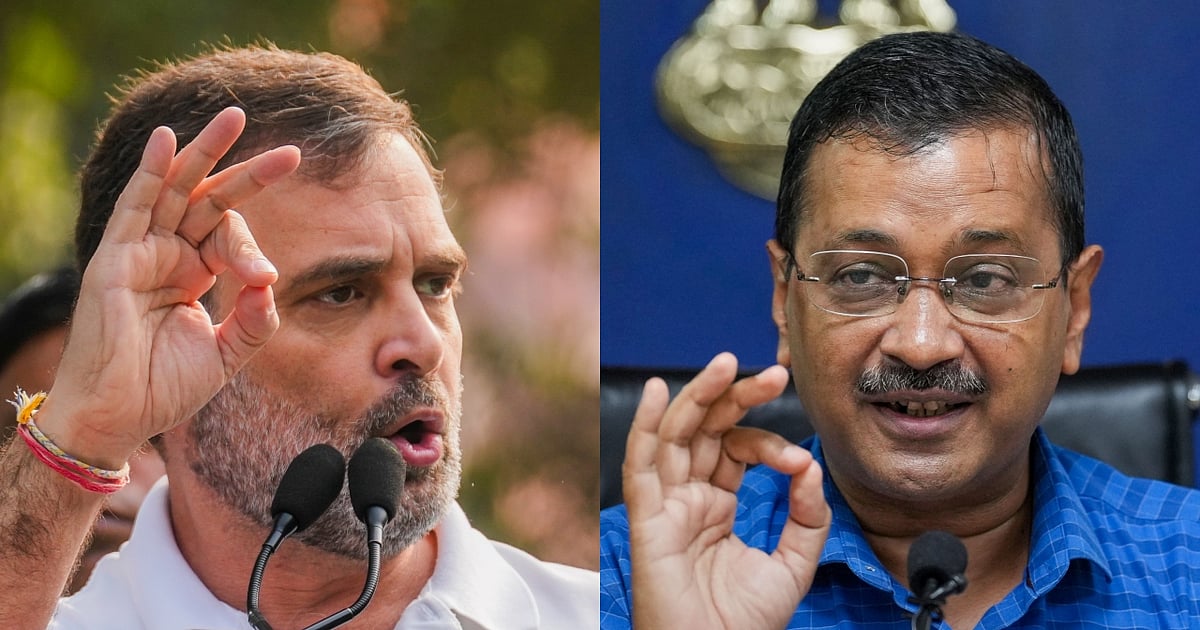 |
|
The upcoming Delhi Assembly Elections in 2025 are shaping up to be a fiercely contested battle, with the latest salvo fired by Rahul Gandhi, leader of the Indian National Congress. During a public meeting held at Hauz Qazi Chowk in Old Delhi, Gandhi directly challenged Delhi's Chief Minister, Arvind Kejriwal, to drink the water supplied to residents of the city. Gandhi's statement, describing the water as 'stinking,' is a pointed criticism of the Aam Aadmi Party (AAP) government's performance on infrastructure and public services. This rhetorical challenge is not merely a political stunt; it taps into a deep-seated concern among Delhi's residents regarding the quality of their drinking water. The issue resonates strongly with voters, particularly in older parts of the city where inadequate infrastructure and aging pipelines contribute to water contamination and inconsistent supply. The use of such strong language highlights the desperation and frustration felt by many residents, a sentiment that Gandhi's campaign is attempting to harness.
Beyond the water quality issue, Gandhi's speech also focused on the Congress party's unwavering support for victims of the 2020 Delhi riots. He emphasized that the Congress party was the only major political force that consistently stood by those affected by the violence, providing assistance and advocating for justice. This message is strategically aimed at garnering the support of marginalized communities who may feel neglected by other parties. The 2020 riots left a deep scar on the city's social fabric, and the memory of the events remains a potent factor in electoral politics. By positioning the Congress as the champion of those affected, Gandhi seeks to build trust and loyalty among a significant segment of the electorate. This strategy also serves to highlight what Gandhi presents as a contrast between the Congress party's actions and the perceived failures of other parties, particularly the AAP, in addressing the aftermath of the riots and delivering justice.
The rally itself was in support of Haroon Yusuf, the Congress candidate for the Ballimaran constituency. Ballimaran, located in Old Delhi, is a historically significant area with a complex political landscape. Choosing to campaign actively in this constituency underscores the Congress party's commitment to reclaiming its traditional base and challenging the AAP's dominance in the area. Yusuf's candidacy and the intensity of Gandhi's campaigning in Ballimaran reflect the broader strategic objectives of the Congress party in the upcoming election. The selection of this location is not accidental. It is a calculated move to address the concerns and anxieties of the residents in this densely populated, and often overlooked, part of Delhi. The Congress is likely aiming to win back voters who may have felt disillusioned or neglected by their previous governance or by other political entities. The event, therefore, serves not only as a platform to criticize the incumbent government, but also to reinforce the Congress party's commitment to the welfare and concerns of the residents of Old Delhi.
The overall impact of Gandhi's challenge to Kejriwal and his emphasis on the 2020 riots and the Congress' stance remain to be seen. The Delhi electorate is known for its discerning nature, and the success of this strategy will depend on how effectively the Congress party can connect with the concerns of voters beyond the dramatic rhetoric. Public perception of the water quality issue, the effectiveness of the Congress party's support for riot victims, and the overall credibility of their candidate in Ballimaran will all be critical factors in determining the success of their campaign. The coming months will be crucial in determining how this political narrative unfolds and how it influences voter sentiment ahead of the 2025 elections. The strategy employed by the Congress hinges upon successfully translating public concerns and dissatisfaction with the incumbent into tangible votes. The challenge to Kejriwal concerning the water quality serves as a stark reminder of the key issues that will define the 2025 Delhi Assembly Elections.
Source: Delhi Assembly Elections 2025: Rahul dares Kejriwal to drink 'stinking' water supplied in Delhi
